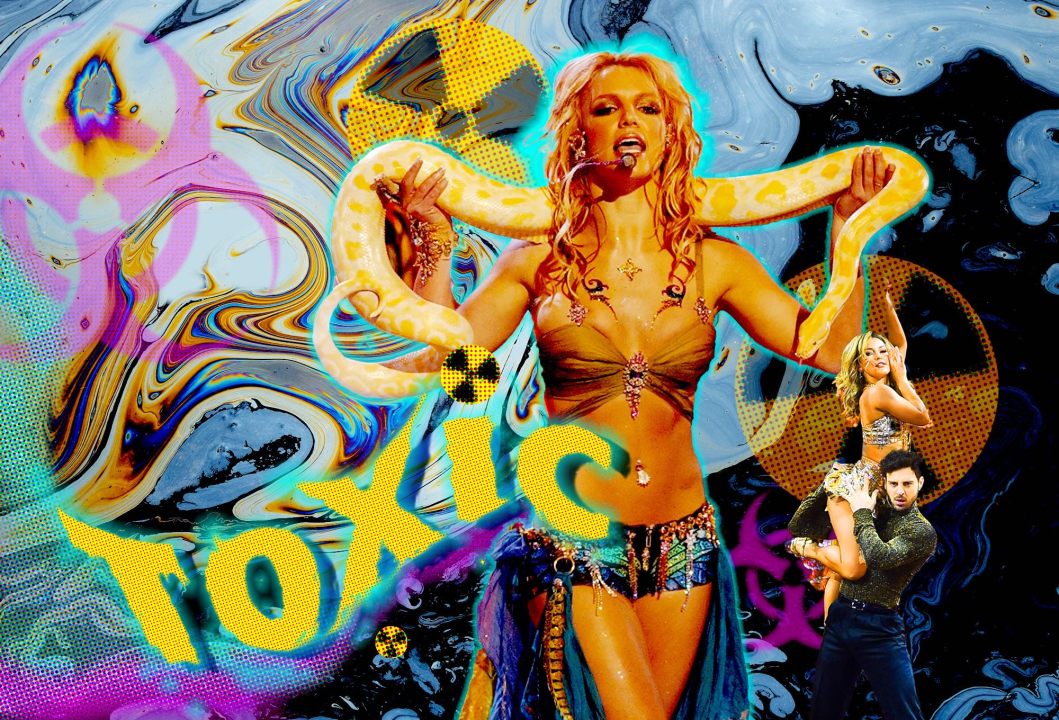There was a time when the word ‘toxic’ was applied in only a handful of circumstances. There was the stuff that occasionally oozed out of a power station into the North Sea and made the fish go funny. Or there was the substance that Christopher Lloyd would stick in the gull-wing doored DeLorean to make it go back to 1955.
More prosaically there was the category of toxicity that included rat poison, bottles of bleach or those small sachets that drop out of cardboard boxes containing newly purchased electronic goods. They were generally labelled ‘toxic’ and for good reason.
But then this all changed. I’m not exactly sure when it happened, but at some point in the space since Britney Spears’ 2003 hit of the same name and about five years ago, the word went bananas. Look now and you can find it applied to almost anything, from Pluto’s noxious atmosphere to the management of a Saturday-night light entertainment programme like Strictly Come Dancing.
In fact the word is now attached to almost any common or proper noun, none of which will actually melt your hands or turn your face green if you touch them. It could include someone’s boss or an entire organisation (the Metropolitan Police has been called toxic more times than a lithium-ion battery factory). It’s been applied to whole societies (often western democracies), political systems, the financial system, Prince Andrew (a ‘toxic brand’, naturally enough) and even the renewable energy industry (get your head around that one – toxic wind power).
It would appear that there is almost no limit to the application of ‘toxic’, making it the word equivalent of a wonder-drug, like, say, aspirin in the 1930s. It has even insidiously been appended to half the human race – or at least the attribute ‘masculinity’ which describes it. In so doing it has upset the apple cart and helped confuse an entire generation of young men, many of whom are now so conflicted about what it actually means to be male that they would rather identify as a transgender meerkat. But it’s not just men, apparently. I discover that there is something called ‘toxic femininity’ too. Which just goes to show that someone else has been listening to Women’s Hour recently.
The point is that with such egregious near-universal distribution, surely the word toxic has become meaningless. Or perhaps – here’s a hope – we have reached peaked toxicity? What we can say for certain is that when a word crops up with such a frequency it begins to bring itself into disrepute. Because when an adjective is sprinkled so utterly liberally it surely starts to lose its efficacy, like our stumbling phalanx of over-abused antibiotics, or sterling after a decade of quantitative easing. Pretty soon you’ll need a whole wheelbarrow of toxics just to insult even a loaf of bread.
‘Toxic’ increasingly says more about the person using the word than those individuals or things to whom it is applied. That’s because, often, it’s simply a label communicating a perceived deficiency of wokery or political correctness in the person or entity being described. So if the panel beside a painting fails to mention that it was donated by a slave-owner, then then whole caboodle becomes ‘toxic’. Or if the billionaire owner of a social media platform expounds a few fruity political opinions, you flounce off it (as the Guardian did), calling his platform ‘toxic’.
And this approaches the heart of it, because my suspicion is that you’re much more likely to find the word applied to politicians and parties on the right of the political dividing line than those on the left. And that means it’s become an adjective that’s tainted by its own politically motivated associations. I’m not sure Britney had that in mind at all back in 2003.
When an adjective is sprinkled so utterly liberally it surely starts to lose its efficacy, like sterling after a decade of quantitative easing
As a result, I would argue that toxic has become toxic. It has become the word equivalent of the unthinking sludge that leeches from the guts of a factory in a Marvel film where some individual is about to be transmogrified into a leering monster with superhuman strength and an addiction to anabolic steroids.
But not only is toxic toxic, it has also been polluted by its own success, by its enormous and excessive overuse. It has become the altogether unhelpful, lazy, catch-all term of abuse of the day and contains no intrinsic meaning other than signifying the opposition or judgment of the individual wielding it.
So let’s put this unhelpful word back in its box and prevent it from poisoning our national conversation any further. Let’s reserve it for use in directly chemical contexts, where it belongs, and acknowledge that ‘toxic’ has ceased to be a viable adjective. In future we should only describe an organisation’s canteen culture as being toxic if Sweeney Todd or Dr Crippen are at the stoves. If we actually mean that it’s corrupt, racist or misogynistic, we should use those words instead. Ditto, if a country’s historical record is disputed, so be it, but let’s only apply the word toxic if its failures extend to industrial pollution or certain public health contexts.
If you don’t believe me that the time has come to retire the word then consider this piece of absurdity. In September on Channel 5 the television presenter Phillip Schofield – himself previously accused of being toxic, don’t forget – wrote a list of all the ‘toxic’ people in his life and threw it on a bonfire in order to symbolically remove himself from them (this was during a ten-day camping holiday called Cast Away). You read correctly.
This word is a poison and the only true antidote is to stop using it and to rebuff those that do. And remember: hemlock is toxic, Strictly is not.








Comments